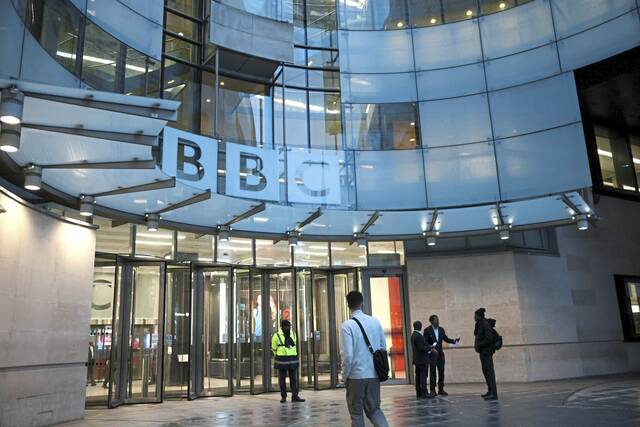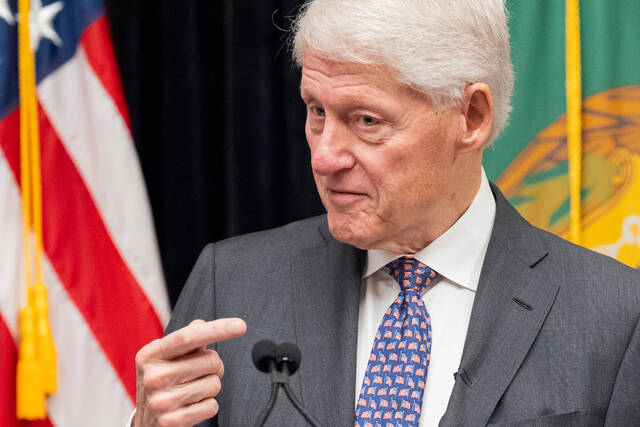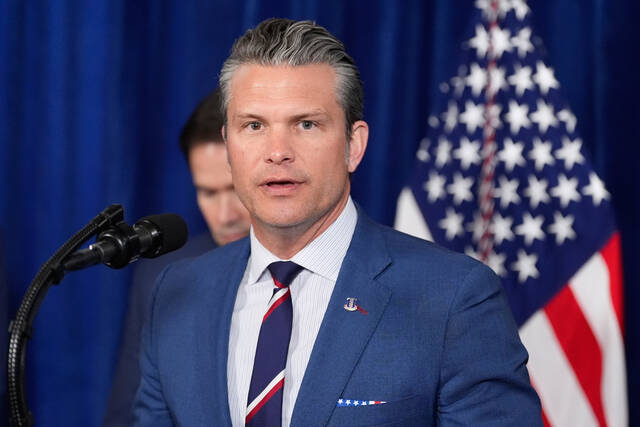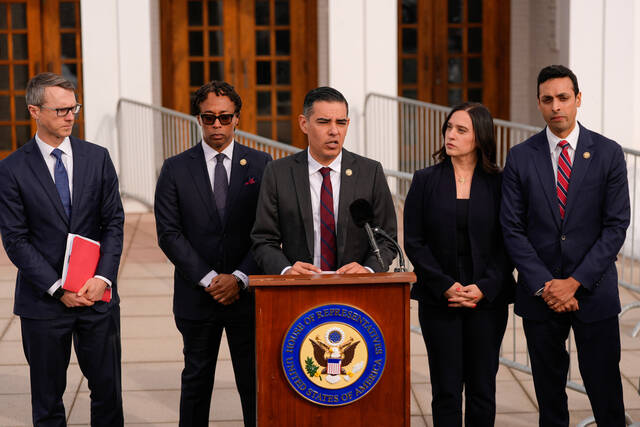President Donald Trump has threatened to sue the BBC for at least $1 billion over its airing of what he says was a deceptively edited documentary, but the case could hinge on whether anyone in Florida watched it online and felt misled.
If that hurdle is cleared, a U.S. court would need to decide whether Britain’s biggest broadcaster intentionally deceived viewers.
Here is a look at what Trump would need to prove and how the BBC could defend itself.
Why does Trump want to sue the BBC?
Trump and his lawyers have accused the BBC of defaming him by splicing together two parts of a Jan. 6, 2021, speech to make it appear he directed his supporters to violently storm the U.S. Capitol.
In a letter viewed by Reuters, Trump’s legal team gave the BBC until Friday to retract the October 2024 “Panorama” documentary news program episode where the excerpts appeared, or face a lawsuit seeking at least $1 billion.
Trump has denied inciting the riot.
Trump told Fox News host Laura Ingraham in an interview on Monday that he had an “obligation” to sue the BBC. “They defrauded the public and they’ve admitted it,” he said.
BBC Chair Samir Shah has apologized for the editing of the footage and a BBC spokesperson said the broadcaster is reviewing the letter.
The revelation about the editing of Trump’s speech and wider criticism of BBC News have plunged the broadcaster into crisis, resulting in the resignations of Director General Tim Davie and Chief Executive of News Deborah Turness on Sunday.
Can Trump sue the BBC in the U.S.?
Trump’s lawyers suggested in the letter that he would sue in Florida, where he has legal residency.
A threshold question would be whether the BBC has actively sought to establish a presence in Florida and whether people in the state watched the documentary and felt deceived by it, legal experts said.
These factors could be critical when a court considers whether it has jurisdiction over the case.
The documentary was not broadcast in the U.S. but was available until recently on the BBC’s online streaming platform.
The broadcaster has offices in Los Angeles and New York, and it has been sued before in Florida federal court. In at least one case, it did not challenge the Florida court’s jurisdiction, court records show.
If a court concludes it does not have jurisdiction, the case could be quickly dismissed.
What would Trump need to prove?
Public figures in the U.S. face steep hurdles in defamation cases.
In addition to showing a statement was false and defamatory, they must prove a defendant knew the statement was false or recklessly disregarded the truth.
During a process known as discovery, Trump’s lawyers likely would ask the BBC if there are internal communications showing that red flags were ignored or that BBC journalists intended to mislead viewers, legal experts said.
They added Trump could rely on a leaked internal BBC memo, written by an ethics and standards adviser, which raised concerns about systemic bias at the broadcaster in favor of the political left. The memo’s critique of the “Panorama” editing process could buttress Trump’s argument that the BBC acted maliciously.
How could the BBC defend itself?
The First Amendment of the U.S. Constitution guarantees the right to free speech and gives the press some of the world’s strongest legal protections against defamation claims.
The BBC would have those protections in any U.S. court. In Florida, the broadcaster could also rely on a state law that allows defendants to swiftly dismiss defamation lawsuits that have no merit or are brought to retaliate against legally protected speech.
The broadcaster could argue that the documentary was substantially true and that its editing decisions did not create a false impression, legal experts said. It could also claim the program did not damage Trump’s reputation.
Trump has said it caused him “overwhelming reputational and
financial harm.”
Why isn’t Trump suing in the U.K.?
U.K. law requires defamation cases to be filed within a year of a statement’s publication, which has already passed for the October 2024 documentary.
The upper limit for libel damages in the UK is about 350,000 pounds ($469,735.00), but in practice they rarely approach that amount. In the U.S., payouts have reached as much as $1.4 billion.
Could Trump really recover $1 billion?
The figure is a jumping-off point, and it is not uncommon for U.S. plaintiffs to file eye-popping damages claims as a play for leverage or an opening bid for settlement talks, legal experts say.
Damages would ultimately be decided by a judge or jury.
If Trump sues for $1 billion, it would not be the first time he has asked for enormous damages from a media company.
Trump filed a $20 billion lawsuit against CBS in 2024 for what he said was deceptive editing of an interview with his presidential election rival Kamala Harris. That suit ultimately settled for $16 million.
Trump in July sued the Wall Street Journal for $10 billion over an article about his ties to deceased sex offender Jeffrey Epstein. The WSJ has denied wrongdoing and the case is ongoing.








